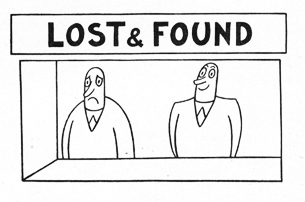Miguel Labrador's Blog, page 10
August 22, 2013
On Whining, Venting, and Bearing One Another’s Burdens…
 A few years ago, during a time of fellowship in our home, there were about a dozen of us chatting and such before the “bible study.” A young man had asked if he could share something that was on his heart, and of course, we all encouraged him to do so. He began to share the testimony of where he came from, his mother’s death, his father’s abandonment, and his difficulties in growing as a Christian. It was deeply moving. But, there was a problem…
A few years ago, during a time of fellowship in our home, there were about a dozen of us chatting and such before the “bible study.” A young man had asked if he could share something that was on his heart, and of course, we all encouraged him to do so. He began to share the testimony of where he came from, his mother’s death, his father’s abandonment, and his difficulties in growing as a Christian. It was deeply moving. But, there was a problem…
You see, he didn’t know how to express himself very well, and from my standpoint, he was taken up too much time. I wanted him to ”get to the point.” There was, after all, a bible study to conduct. My patience wore thin and my anger grew. I’m not sure exactly what erupted from my mouth, but it was something like “WHEN ARE WE GOING TO GET TO THE POINT OF WHAT YOU’RE TRYING TO SAY???”
It was then a fellow pastor, one of the most humble ones I know, looked at me with this penetrating sort of sadness and said, “Brother Miguel, don’t you think that Jesus wants us to bear one another’s burdens?” (Galatians 6:2) OUCH! I’ve been rebuked before, but this was something different, something powerful, and something that brought instant repentance.
I’ll admit that I’m not a very good listener. I like brevity. I’m not a talking for talking’s sake kinda guy. I love twitter! 140 characters to say what you’ve got to say and get out. Sometimes I wish that people could only speak tweets. After all, proverbs says, “Too much talk leads to sin. Be sensible and keep your mouth shut.” (Proverbs 10:19) It’s Holy to be a man of few words, isn’t it? I mean, people shouldn’t be allowed to whine and vent ad infinitum, should they?
Dietrich Bonhoeffer said, “There is a kind of listening with half an ear that presumes already to know what the other person has to say. It is an impatient, inattentive listening, that despises the brother and is only waiting for a chance to speak and thus get rid of the other person. This is no fulfillment of our obligation, and it is certain that here too our attitude toward our brother only reflects our relationship to God. It is little wonder that we are no longer capable of the greatest service of listening that God has committed to us, that of hearing our brother’s confession, if we refuse to give ear to our brother on lesser subjects. Secular education today is aware that often a person can be helped merely by having someone who will listen to him seriously, and upon this insight it has constructed its own soul therapy, which has attracted great numbers of people, including Christians. But Christians have forgotten that the ministry of listening has been committed to them by Him who is Himself the great listener and whose work they should share. We should listen with the ears of God that we may speak the Word of God.” ~ Life Together: The Classic Exploration of Faith in Community.
You might have to go back and read that a couple of times in order for it to soak in.
The scriptures say, “Understand this, my dear brothers and sisters: You must all be quick to listen, slow to speak, and slow to get angry.” (James 1:19) Seems pretty clear, doesn’t it?
David Hayward, AKA “nakedpastor,” recently said, “some people might choose to be angry their whole lives. It’s their right to be. They can be angry for as long as they feel they need. But I have also seen, when people are given the right, the space and the opportunity to vent, that in time they find room to forgive and move on.”[1]
Some extend or multiply their words because of hurt, others because they feel as if they don’t have a voice, or just aren’t listened to. On the other hand, there are folks who simply talk too much and are always saying the wrong things. Regardless, it seems that whining or venting is something that followers of Christ should not try to squelch. Or should they?
A few questions:
1. When, if ever, is it appropriate to stop someone from whining or venting?
2. Is there a Christlike way to whine and vent?
3. How do you personally balance the proclamation of the gospel and genuinely listening to people?
[1] Richard Clark and the Preemption of Anger Blog Post
(Visited 66 times, 66 visits today)














CommentsOuch! It is so easy to be thinking up the response instead of ... by Tom SchultzOops..one of my sentences was cut off by your software. I ... by CarlosHi Miguel, I appreciate your humility in…well…admitting ... by CarlosRelated StoriesSo, Tell Me Again Why ‘They’re Leaving The Church?’What’s the Difference Between ‘Always Reforming,’ and ‘Seeking to be Relevant?’Make Disciples… Sure, But What Ever Happened To Seeking The Lost?
August 21, 2013
Did you know that the word “mission” is completely missing from the New Testament?
 Did you know that the word “mission” is completely missing from the New Testament? Even when the NASB uses the term in Acts 12:25, “And Barnabas and Saul returned from Jerusalem when they had fulfilled their mission, taking along with them John, who was also called Mark,” it’s really not the word “mission.” What does your favorite translation say?
Did you know that the word “mission” is completely missing from the New Testament? Even when the NASB uses the term in Acts 12:25, “And Barnabas and Saul returned from Jerusalem when they had fulfilled their mission, taking along with them John, who was also called Mark,” it’s really not the word “mission.” What does your favorite translation say?In discussing mission and ministry last night with our Discipleship Group, we discovered that the singular use of the word “mission” in Acts 12:25 is the exact same word that is used for “ministry,” in the Greek. The word “diakonian” διακονίαν means “service.” Even when spoken of in the plural, as in the case of 1 Corinthians 12:5, “And there are varieties of ministries, and the same Lord,” it still means “services.”
One of the most popular references used for “ministry,” is Ephesians 4:12 where the ESV translates it this way, “to equip the saints for the work of ministry , for building up the body of Christ.” The NIV is truer to the original when it translates the verse this way, “to equip his people for works of service , so that the body of Christ may be built up.”
This means that “mission” and “ministry” are synonymous, and both words mean service. Ultimately, this also means that there are no missionaries or ministers, biblically speaking, just servants.
What implications does this have for The Church?














CommentsOf course, the word trinity is not found in the NT or OT text, ... by Charles B.We have assigned the word missions to a concept that is plainly ... by ChristieRelated StoriesA Couple of Quotes about The Church That You’re Going to Want to ReadSo, Tell Me Again Why ‘They’re Leaving The Church?’What Does God Want The Church To Do Now, and How Do You Know?
August 20, 2013
What Does God Want The Church To Do Now, and How Do You Know?
 Assuming the Church is evolving, and that it is growing to become in every respect the mature body of Christ (Ephesians 4:15), then shouldn’t the mission of the church be evolving too? Prophetic types are constantly contemporizing, contextualizing, and calling the Church to “act its age.”
Assuming the Church is evolving, and that it is growing to become in every respect the mature body of Christ (Ephesians 4:15), then shouldn’t the mission of the church be evolving too? Prophetic types are constantly contemporizing, contextualizing, and calling the Church to “act its age.”
If it’s true that the mission of the church evolves, matures, or changes over time, then how is she to know what those changes are?
At this point some may object and say that “God never changes,” (Malachi 3:6) and therefore the church and mission do not change. But, the myriad of voices coming from within the church seem to suggest the contrary.
“Is the mission of the church to be reclaimed from the past?” I think the question is flawed. It might be better to ask, “Is the church of the mission to be reclaimed form the past.” If it’s the latter, then ”pressing on to take hold of that for which Christ Jesus took hold of her,” (Philippians 3:12) seems a more natural trajectory. The current state of the church is defined within the context of its ever maturing mission.
If the church doesn’t evolve, mature, or change, then the question is moot.
If it does, then how do we know what God wants her to do now?














Commentsthe body metaphor, body of Christ, strongly suggests that the ... by MarshallRelated StoriesSo, Tell Me Again Why ‘They’re Leaving The Church?’A Missiorganic View of the ChurchA Couple of Quotes about The Church That You’re Going to Want to Read
August 18, 2013
Fracturing The Logos of the Gospel – Part II
 In PART I of this series, I said, “It has become fashionable to sever the (λόγος Logos) into parts and discard the objectionable.” I’d like to continue on that theme, but focus primarily on the relation of the words “gospel” and “logos.” In the book “Scripture As Logos; Rabbi Ishmael and the Origins of Midrash” The author states: “The logos is simultaneously the instructor and the content of its instruction.” I’ll take that one step further and say that the gospel is both The Logos (Jesus) and The Logois (Jesus’ words) (Luke 23:9) (Luke 4:22) etc. The purpose of this post is to call into question the notion that “The gospel is not a person, it’s the message of a person.”
In PART I of this series, I said, “It has become fashionable to sever the (λόγος Logos) into parts and discard the objectionable.” I’d like to continue on that theme, but focus primarily on the relation of the words “gospel” and “logos.” In the book “Scripture As Logos; Rabbi Ishmael and the Origins of Midrash” The author states: “The logos is simultaneously the instructor and the content of its instruction.” I’ll take that one step further and say that the gospel is both The Logos (Jesus) and The Logois (Jesus’ words) (Luke 23:9) (Luke 4:22) etc. The purpose of this post is to call into question the notion that “The gospel is not a person, it’s the message of a person.”
I’d like to make the following proposition:
The “truth” is a person (John 14:6). The “Word” (logos) is a person (John 1:1) “Truth,” “Word,” (logos) and “Gospel” are sometimes synonymous. Therefore “The Gospel” can and does refer to a person, the person of Jesus Christ.
You may want to disassemble that proposition or identify it as logically invalid, but first, consider the following:
Paul uses the gospel and Jesus synonymously – Paul says “I do all things for the sake of the gospel, so that I may become a fellow partaker of it. (1 Corinthians 9:23) It’s interesting here that “Partaker” – συνκοινωνὸς ~ synkoinōnos “one who syncs up in fellowship” (co-fellowshipper) and the personal pronoun “auto” – αὐτοu – (with it), is not just referring to a thing, but a relationship with a person.
In Philippians 3:7,8, Paul says “But whatever gain I had, I counted as loss for the sake of Christ. Indeed, I count everything as loss because of the surpassing worth of knowing Christ Jesus my Lord. For his sake I have suffered the loss of all things and count them as rubbish, in order that I may gain Christ.
These two passage taken together show that Paul “does all things for the sake of the gospel,” in the Corinthians passage and Paul “does all things for the sake of Christ” in the Philippians passage. Therefore since “all things” can not be done for two different things, they must be the same thing. Jesus is both the gospel and relays the gospel. The gospel is simultaneously person and message.
Paul personifies the Gospel – In Ephesians 1:13 it says, “In him you also, when you heard the word of truth, the gospel of your salvation, and believed in him, were sealed with the promised Holy Spirit.” Jesus said he was the truth personified and that he was the word (logos) personified. In this passage “the gospel” is also personified and equated with Jesus. In equation form, it might look like this Word = Truth = Gospel = Jesus
The writer of Hebrews, Peter, and Paul use the same “partaking language” regarding Jesus and the gospel. - “Since therefore the children share in flesh and blood, he himself likewise partook of the same things, that through death he might destroy the one who has the power of death, that is, the devil.” (Hebrews 2:14) But rejoice inasmuch as you participate in the sufferings of Christ, so that you may be overjoyed when his glory is revealed.” (1 Peter 4:13) These two passage combined with the above (1 Corinthians 9:23) demonstrate a “sharing” in the relayed message and its relayer.
The concept of “Christ Crucified” – “Christ crucified,” (1 Corinthians 1:23) is the Gospel. It’s the who and the what, the medium (person) and message, the Word and His words… it is the statement that begs the question “Who is Christ, and what did He do?” To separate the gospel message from the man Christ Jesus (1 Timothy 2:5) is to empty the cross of its power (1 Corinthians 1:17) Jesus was God’s message in the flesh.
“One can not separate the relational Jesus from His reasonable gospel
as if they were two completely different things.”
John the Baptizer and Jesus said that King, Kingdom & Message are gospel. - The gospel of the Kingdom loses it’s meaning without the person of the King. Jesus was both message of Kingdom at hand, and King. (John 5:46)
In part III, I hope to further develop this line of thought. For now, a few questions:
Is it true then that “The gospel is not the person of Jesus, but simply a message about him?
Why is it potentially harmful to separate the gospel from the person of Jesus?
Why may it be potentially harmful to join them?














CommentsMiguel, I think this is a very important study. I appreciate ... by Alan KnoxRelated StoriesWhat’s the Difference Between ‘Always Reforming,’ and ‘Seeking to be Relevant?’Fracturing The Logos of the GospelMake Disciples… Sure, But What Ever Happened To Seeking The Lost?
August 17, 2013
‘Excuse me, but your Church is Inside Out.’
 “Lutheranism restricted itself to an exclusively ecclesiastical and theological character, while Calvinism put its impress in and outside the church upon every aspect of human life.” ~ Abraham Kuyper, Christianity: Total World And Life System
“Lutheranism restricted itself to an exclusively ecclesiastical and theological character, while Calvinism put its impress in and outside the church upon every aspect of human life.” ~ Abraham Kuyper, Christianity: Total World And Life System
While this quotes speaks specifically to the Lutheran and Calvinistic approaches to church, it can be more broadly applied. Should the church be more characteristically disposed to being part of every sphere of human life, or separate itself and focus inward?














CommentsI believe the church is one of a number of spheres of influence ... by Rob KampenChrist is all-encompassing; inward & outward; things seen and ... by MarshallRelated StoriesA Missiorganic View of the ChurchA Couple of Quotes about The Church That You’re Going to Want to ReadSo, Tell Me Again Why ‘They’re Leaving The Church?’
August 16, 2013
A Missiorganic View of the Church
It’s a strange word, I know, but bear with me. Some seek to define the Church as what it once was, others as what it currently is, and still others as what it will be, or is becoming. I think that some very genuine questions are being asked by those who are seeking to re-engage the church. Of course, for those willing to risk and ask the hard questions, it can be a bit dangerous. Institutions whose very frameworks depend on their definitions, are threatened when those definitions and the accompanying assumptions are called into question. For that past 10 years or so, I’ve had what I would describe as a God-Directed Dissatisfaction with the status quo definitions of what the church is.
In an effort to alleviate that dissatisfaction, I’ve gone through phases of retrofitting, retaining, restoring, reforming, restructuring, and much respiration. When the missional conversation started many years ago, I thought to myself “YES!” this is it. This is a framework by which I can form a more biblical view of the church. To me;
THE MISSIONAL CHURCH IS… the people of God living with the sentiment of sent-ness acting in concert together in fulfillment of God’s Mission. Always engaging and discipling the nations (ethnic groups), proclaiming the message of the Godhead in word and deed, being collectively conformed to God’s image through facilitating interconnectedness between people and God, and abiding more and more in Christ.
Likewise, I think the organic conversation began long ago. Initially it smacked against my prefigured sensibilities. Amongst the people who held to this view of the church, there seemed to be quite a bit of bickering. I almost dismissed the idea entirely. But, for me now;
THE ORGANIC CHURCH IS… unified indigenous gatherings shaped into their unique forms by learning how to live by Christ and express Him corporately, creatively, and continually. It’s a family on mission together, a living organism, a totally participatory, non-hierarchical, non-positional, mutually influential, and consensual people on a trajectory of the reconciliation of all things.
These definitions are not meant to be reductionistic, but simply “working definitions” by which we can begin a “missiorganic” conversation. Over the past few years, I’ve been trying to take the best of both the missional and organic views and combine them. It’s been like trying to construct a super-collider. My friends in the missional church camp hold organic concepts at arm’s length or even outright reject them, and my organic church friends steer clear of what they perceive to be the programmatic, institutional, and overly structured missional machine.
So, if we were to take the above working definitions and combine them it might look something like this:
THE MISSIORGANIC CHURCH IS… the unified indigenous people of God living with the sentiment of sent-ness, acting in concert together in fulfillment of God’s Mission, and being shaped into their unique expressions by learning how to live by Christ and express Him corporately, creatively, and continually in that mission. It’s a living, totally participatory, non-hierarchical, non-positional, mutually influential, and consensual family on a Kingdom trajectory along with its King towards the proclamation of HIS message in word and deed, the conformation to God’s image through facilitating interconnectedness between people and God, and the abiding more and more in Christ toward the reconciliation of all things.
What do you think of the word “Missiorganic” and its definition as related to the church? If the church, by its very nature is both missional and organic, then shouldn’t it look that way? If you had to offer your own definition of the Missiorganic view of the church, what would it be?
By the way, it’s still a working definition. I will update, revise, and hone this definition over time and post revision edits with dates below in the comment section.














CommentsAnd thus what I see as the difference between organic and ... by CatherineSCatherineS, Thanks for commenting. I totally understand what ... by MiguelYou're right Gibby. I was trying hard not to interject another ... by MiguelTo be honest, I have the same problem with the Missiorganic ... by CatherineSWhile it can be assumed by the definition/description, we would ... by Gibby EspinozaRelated StoriesA Couple of Quotes about The Church That You’re Going to Want to ReadTraining Every Believer For Mission, Not Just Pastoral Care For CongregationsSo, Tell Me Again Why ‘They’re Leaving The Church?’
August 14, 2013
A Couple of Quotes about The Church That You’re Going to Want to Read
 Here are a couple of quotes by Abraham Kuyper on the Church. But first allow me to introduce him to you.
Here are a couple of quotes by Abraham Kuyper on the Church. But first allow me to introduce him to you. Abraham Kuyper, was a Dutch politician, journalist, statesman and theologian. He founded the Anti-Revolutionary Party and was prime minister of the Netherlands between 1901 and 1905. Theologically Kuyper has also been very influential. Some might say he was among the first neo-reformed. Kuyper made a significant contribution to the formulation of the principle of “common grace,” and an wrote much about it.
As of the writing of this blog, there’s a free Ebook for Kindle with some of those writings. You can get it here.
Of great interest, to me at least, was Kuyper’s view on the role of God in everyday life. He believed that God continually influenced the life of believers, and daily events could show his workings. Kuyper famously said, “Oh, no single piece of our mental world is to be hermetically sealed off from the rest, and there is not a square inch in the whole domain of our human existence over which Christ, who is Sovereign over all, does not cry: ‘Mine!” [3]
Now, here are the 2 quotes that I wanted to point out:
1. As an institute, the church was an apparatus, “grounded in human choices, decisions, and acts of the will, consisting of members, officers, and useful supplies.” [2]
additionally, and conversely, he said:
2. “However, the church in fact is an organism, in its hidden unity as the mystical body of Christ existing partly in heaven, partly on earth, and partly unborn, having penetrated all Peoples and nations, possessing Christ as its natural and glorious head, and living by the Holy Spirit who as a life-engendering and life-maintaining force animates both head and members.” [3]
A few questions:
1. Can the church be both institution and organism?
2. Can church leadership be structured and organic?
3. Is the church an “apparatus” and a supply house?
~
[1] 1880 Inaugural Lecture, Free University of Amsterdam
[2] Kuyper, “Common Grace,” 187.
[3] Kuyper, “Common Grace,” 187.













 Related StoriesTraining Every Believer For Mission, Not Just Pastoral Care For CongregationsSo, Tell Me Again Why ‘They’re Leaving The Church?’Women Want A Place in the Hierarchy of the Church.
Related StoriesTraining Every Believer For Mission, Not Just Pastoral Care For CongregationsSo, Tell Me Again Why ‘They’re Leaving The Church?’Women Want A Place in the Hierarchy of the Church.
August 11, 2013
20 Cultural Contexts In Disciple Making
 A couple of years ago I was invited to a 3 day International round table discussion on Discipleship. During one of the discussions, I was able to share some thoughts about catalyzing a disciple making culture. About 20 minutes into the conversation a church leader from another country stood up and objected that I, as a “Gringo,” did not know or understand the context of the people here and that my advice wasn’t culturally applicable. Almost immediately, several others around the table objected to his objection. They were people who had witnessed our work, people that knew us, and people who joined us on the disciple making journey. They were the ones that had inspected the fruit of the missional ideas that we espouse. That wasn’t the first time an objection like that was directed towards us. That kind of objection can take on many forms. It can be constructive or destructive. It can also reveal inflexibility or an overly dogmatic approach to disciple making. I think it’s great when someone asks, “How can we take what you’re doing in your contexts and cultures and make it work in ours?” But, it might just be the wrong question.
A couple of years ago I was invited to a 3 day International round table discussion on Discipleship. During one of the discussions, I was able to share some thoughts about catalyzing a disciple making culture. About 20 minutes into the conversation a church leader from another country stood up and objected that I, as a “Gringo,” did not know or understand the context of the people here and that my advice wasn’t culturally applicable. Almost immediately, several others around the table objected to his objection. They were people who had witnessed our work, people that knew us, and people who joined us on the disciple making journey. They were the ones that had inspected the fruit of the missional ideas that we espouse. That wasn’t the first time an objection like that was directed towards us. That kind of objection can take on many forms. It can be constructive or destructive. It can also reveal inflexibility or an overly dogmatic approach to disciple making. I think it’s great when someone asks, “How can we take what you’re doing in your contexts and cultures and make it work in ours?” But, it might just be the wrong question.
It’s a difficult question to answer because “our context” is so very diverse, and the question itself might presume only half an answer. It’s not “what works,” but “who works.” “for it is God who works in you to will and to act in order to fulfill his good purpose.” (Philippians 2:13)
In the region of Ecuador where we work, there are more micro-cultures than in many other parts of the world. The reasons are extensive, but they center on the existence of microclimates, micro-geographics, micro-economies, and micro-stories. Initially when I was thinking through this, I was going to name some cities, towns, villages, and neighborhoods and describe the differences among them culturally. Then I decided it might be imprudent. Instead, here are some two-word descriptions of some of the communities we work in:
Transient Hosters
Intense Workers
Entitled Coveters
Agrarian Loners
Religious Protectors
Suffering Sinners
Isolationist Defenders
Curiosity Satiators
Tourist Pleasers
Inquisitive Seekers
Movement Joiners
Fearful Worriers
Prepared Listeners
Faithful Migrators
Tribal Warriors
Conquered Objectors
Hope Quitters
Forgotten Yearners
Tradition Maintainers
Disciple Makers
As I stated earlier, these are my “off the cuff” first thought, two-word descriptions of just some of the cultures we find ourselves working in. I don’t mean any of them to be derogatory. These reflections are meant to be thought provoking and representative of my initial and continuing assessments. Each of these also have distinct sets of sub-cultures. The above list only represents about half of the communities that we are working in. Discipleship in these contexts necessitates an adaptability in the manner of gospel delivery and an unwavering stability in the gospel message. So, in answering the question, ”How can we take what you’re doing in your context and make it work in ours?…”
First, I need to slow down and not try to be the guru of disciple making practicality, the guy with all the answers. Then, I might answer the question with questions like “How do you measure what works?” and “According to whose standards will you establish benchmarks?”
Surely there will be similarities in the various approaches to disciple making. If disciple making is rooted in the Gospel, then there must be. The Gospel is trans-generational and trans-cultural. It also transcends modes of thought or mind-sets like Eastern vs. Western, Hebraic vs. Greek, and modern vs. postmodern.
We are a people who are being transformed by the renewing of our minds. (Romans 12:2) (2 Corinthians 3:18) Likewise, those who give audience to the gospel are transformed in some way. The gospel, by its very nature is transformative. Transformation receives its power in the gospel. When transformation loses its dependence on the gospel, it easily becomes more about what we are trying to achieve and less about who we are trying to follow.
Additionally, we should avoid categorizing every human being to our inadequate, instant, and often impetuous assumptions. There is no magic decoder ring for discipleship within different contexts or cultures. For us, it’s simply being in and amongst people, staying in motion while gospelizing, and loving them and God.
A few questions:
1. What two-word description would you use to describe the context(s) you’re working in?
2. In what ways do you try to understand and identify with the cultures and contexts in which you live?
3. What contextual or cultural barriers exist where you are that impede disciple making?













 Related StoriesMake Disciples… Sure, But What Ever Happened To Seeking The Lost?Paul And Barnabas As Second Generation Disciple Makers… And Why it MattersThe Parable of the Rich Young Discipler
Related StoriesMake Disciples… Sure, But What Ever Happened To Seeking The Lost?Paul And Barnabas As Second Generation Disciple Makers… And Why it MattersThe Parable of the Rich Young Discipler
August 10, 2013
Is There Anything Besides ‘The Works of the Law’ Written on People’s Hearts?
 Is there a code of moral conscience ‘written’ on all people’s hearts? Does every human being come imprinted with God’s behavioral standards? The scriptures say the following:
Is there a code of moral conscience ‘written’ on all people’s hearts? Does every human being come imprinted with God’s behavioral standards? The scriptures say the following:
“So, when Gentiles, who do not have the law, instinctively do what the law demands, they are a law to themselves even though they do not have the law. They show that the ‘work’ of the law is written on their hearts. Their consciences confirm this. Their competing thoughts will either accuse or excuse them.” (Romans 2:15-16)
In other words, those that are “apart” from God show that there is some common moral standard amongst them. There’s a sense of right and wrong that guides them. Unfortunately many use this moral sense as a means to judgmental and controlling ends. Some would say that humans have become so corrupt, and that this inner sense of morality has become so obscured, that they are completely unaware of it and unable to access it. I would disagree. According to Romans 2, those who are apart from God “demonstrate” that some of it remains. John Gill says,
“there are some remains of the old law and light of nature,
which as by their outward conduct appears,
so by the inward motions of their minds.”
Beyond the proverbial “slap on the wrist” manner by which some use the law to impose human guilt followed by human repentance, there is refreshment, trust, wisdom, joy, and radiance. True repentance, changing one’s mind/direction, is a gift of God and in no way can be leveraged by human force. The Law serves “other” purposes too:
The law of the Lord is perfect,
refreshing the soul.
The statutes of the Lord are trustworthy,
making wise the simple.
The precepts of the Lord are right,
giving joy to the heart.
The commands of the Lord are radiant,
giving light to the eyes.
(Psalm 19:7,8)
In reading an obscure book by a missionary who served in an Eastern context for almost 40 years, I found this quote where he states;
“God has put within us the knowledge of His love. Whoever our Maker is, He has made us with common knowledge: Love fulfills all moral and ethical responsibilities toward one another… We believe God is love, because He has written the truth of His love in the hearts of all people.”
A few questions:
Is there more than just “The Law” written on the hearts of all people?
What more?
What are the implications for Evangelism & Discipleship?













 Related StoriesTraining Every Believer For Mission, Not Just Pastoral Care For CongregationsMake Disciples… Sure, But What Ever Happened To Seeking The Lost?So, Tell Me Again Why ‘They’re Leaving The Church?’
Related StoriesTraining Every Believer For Mission, Not Just Pastoral Care For CongregationsMake Disciples… Sure, But What Ever Happened To Seeking The Lost?So, Tell Me Again Why ‘They’re Leaving The Church?’
August 7, 2013
Make Disciples… Sure, But What Ever Happened To Seeking The Lost?
 The dialogue about the word “Go” in the Great Commission continues. Whether one should Make Disciples “as you go” about your daily life, or assume a posture of “having gone,” or even maintain an attitude of urgency and intentionality by getting up off your butt and “going” all the time, it’s go, go, go…
The dialogue about the word “Go” in the Great Commission continues. Whether one should Make Disciples “as you go” about your daily life, or assume a posture of “having gone,” or even maintain an attitude of urgency and intentionality by getting up off your butt and “going” all the time, it’s go, go, go…
I think the the word “go” in Matthew 28:19,20 is best understood as “go, and having gone.” Neither sense is sufficient independently. I think, for the most part, we can wrap our brains around that. But, what ever happened to pursuing, searching for, or seeking the lost? It’s one thing to make disciples of those who are “found” within our spheres of influence, but quite another to actively seek the lost. The tendency is to divide the two and act accordingly. For example, there are some who think that they can find the lost, get them saved, and then hand them off to others for discipling.
Aubrey Malphurs provides insight into the importance of the word “go” and the practice of pursuing the lost:
“The Savior clarifies what He means by this word in such passages as Luke 5: 27-32, Luke 15: 1-10, and Luke 19: 1-10, where He develops the concept of seeking lost people such as Levi the tax-gatherer and his friends, tax-gathers and sinners in general, and Zacchaeus. Far too many churches are waiting for lost people to come to them . . . the church will have to take the initiative and pursue these lost people. [1]
“For the Son of Man came to seek and save those who are lost.” (Luke 19:10)
The concept of “Lostness” has been abused by the church. All sorts of discriminating behavior has been justified by dividing people into the camps of “lost” & “found.” It is further complicated in the post-modern age where everyone considers themselves as “finding” and searching for meaning. They are neither lost nor found and don’t wish to be labeled, tagged, or classified as such. They, in their own estimation are not “lost” (Matthew 15:24) or “sick” (Mark 2:17) or “condemned” (Mark 16:16) The Church, it seems, is being convinced into the same line thinking. It’s almost as if it has become fearful in identifying those who are “in Christ,” (Galatians 3:27) and those who remain “outside” of Christ (Ephesians 2:1-3). Does the church no longer believe that they were “lost but now found,” and that others too are lost and need to be found?
Take a look at this quote from “Disciple Making Is . . . How to Live the Great Commission with Passion and Confidence” by Dave Earley and Rod Dempsey
“Jesus told several parables to reveal the importance of intentionally seeking the lost. In Luke 14, He speaks of going out “into the streets and alleys” to bring in “the poor, maimed, blind, and lame!” (Luke 14: 21). Luke 15 opens with the Pharisees rebuking Jesus for eating with tax collectors and sinners (Luke 15: 1– 2). Jesus responded by telling them two parables about the need for a passionate pursuit of the lost. The first is about a shepherd who left his flock of ninety-nine sheep to find the one that was lost (Luke 15: 3– 6). The joy of the shepherd over finding his one lost sheep was compared with the joy in heaven when a lost sinner repents (Luke 15: 7). Next, Jesus told of a woman who diligently searched to find one lost coin. Again, this is compared with the great joy in heaven when one lost sinner repents (Luke 15: 8– 10). [2]
I do not wish to create a false dilemma or dichotomy here, but do wish to ask a few questions:
1. What, is your estimation is the relationship between seeking the lost and Making Disciples?
2. Are all believers to seek the lost?
3. Do we as believers ever have the right to tell others that they are “lost?”
[1] Aubrey Malphurs, Planting Growing Churches for the Twenty-First Century (Grand Rapids: Baker, 1992), 42.
[2] Earley, Dave; Dempsey, Rod (2013-08-01). Disciple Making Is . . .: How to Live the Great Commission with Passion and Confidence (Kindle Locations 156-162). B&H Publishing Group. Kindle Edition.














CommentsMan, this triggers tons of thoughts. 1. Seeking the lost is ... by Mark GuinnRelated StoriesThe Parable of the Rich Young DisciplerSo, Tell Me Again Why ‘They’re Leaving The Church?’Training Every Believer For Mission, Not Just Pastoral Care For Congregations




